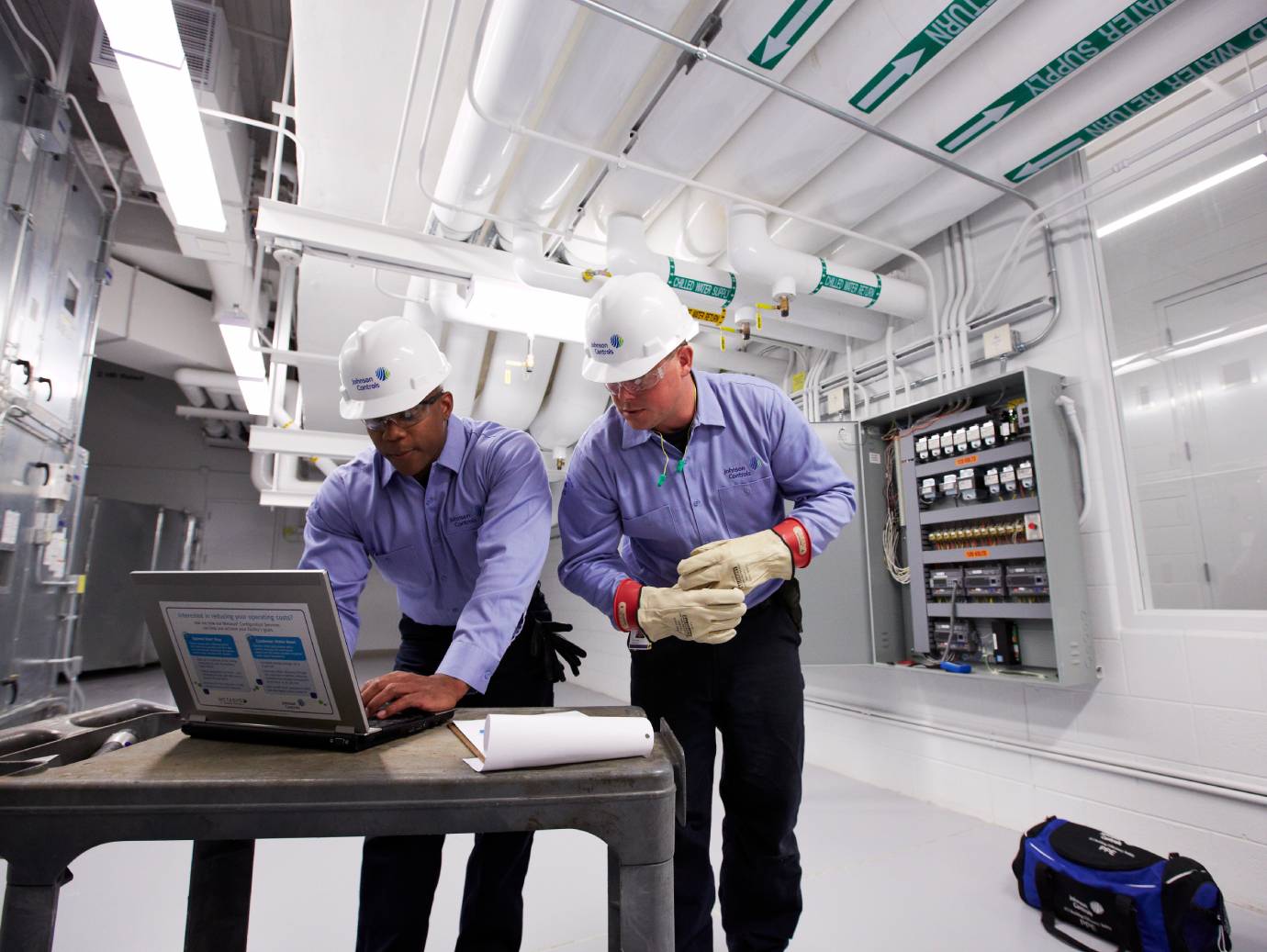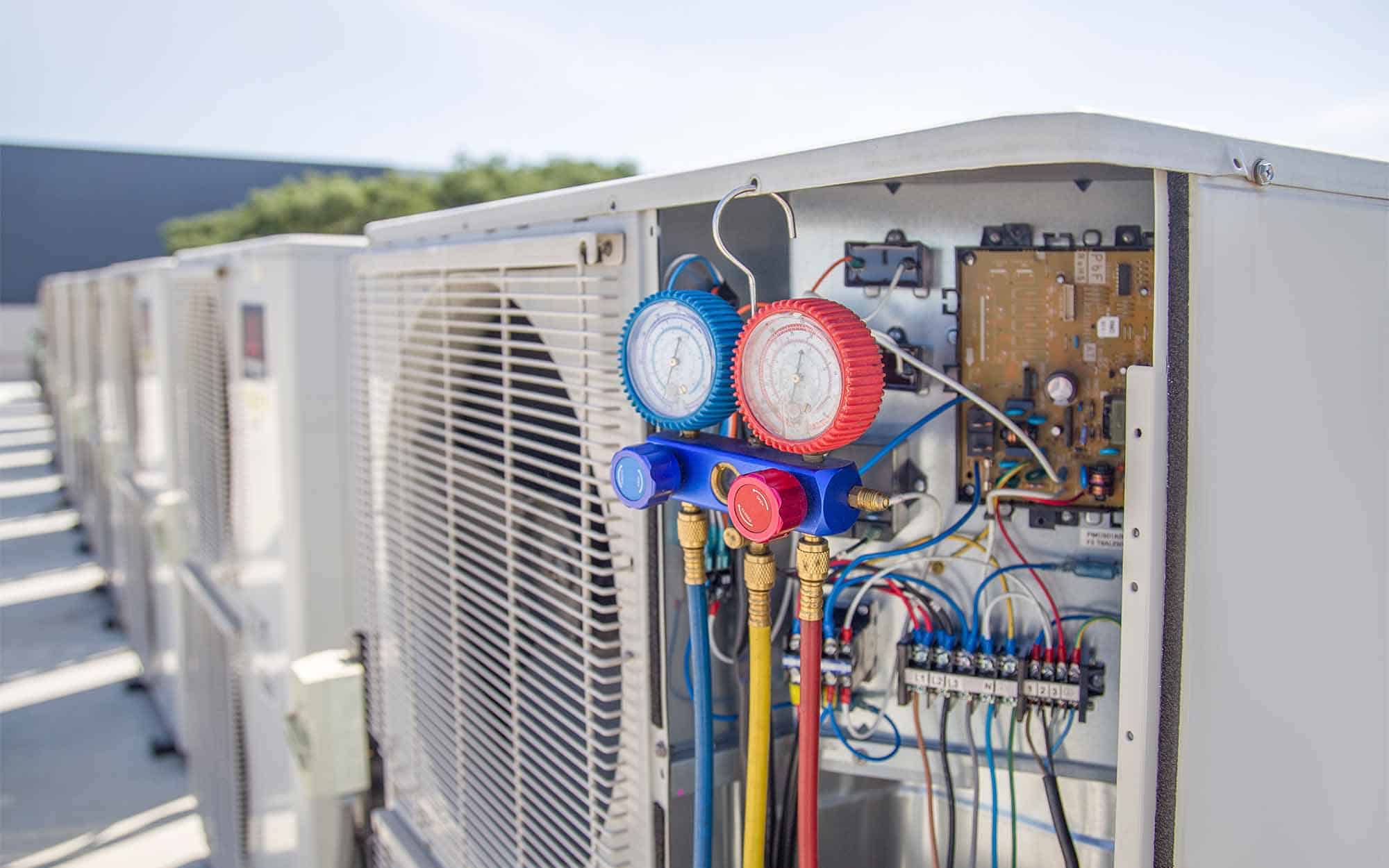Best Ways to Cut Costs on Your furnace replacement Project
Best Ways to Cut Costs on Your furnace replacement Project
Blog Article
Selecting In Between a Heatpump and Heating System: Secret Factors To Consider for Your A/c Requirements
When evaluating home heating choices for HVAC needs, the choice in between a warmth pump and a furnace can be complicated. Each system offers unique benefits tailored to details environments and power effectiveness goals. Understanding these differences is important for making an enlightened option. Key elements such as installment costs and environmental influence additionally complicate the choice procedure. Which choice genuinely lines up with one's convenience and sustainability preferences? The complying with areas will check out these considerations carefully.
Understanding Warmth Pumps: Exactly How They Function and Their Advantages
While numerous property owners take into consideration different home heating options, understanding how heatpump function and their benefits can significantly influence their decision. Heatpump run by transferring heat instead of generating it. In the winter months, they remove heat from the outside air or ground and transfer it inside your home, while in the summer, they reverse this procedure, cooling down the home by getting rid of warmth outside. This dual performance makes them versatile for year-round environment control.One of the main benefits of warm pumps is their power performance. They make use of substantially less power compared to typical heater, possibly causing lower utility bills (heat pump service). Furthermore, heatpump have a smaller carbon footprint, making them an eco-friendly selection. They likewise need less maintenance than traditional systems, adding to lasting price savings. Overall, recognizing the technicians and benefits of warm pumps can assist homeowners make informed choices regarding their heating and cooling down needs
Exploring Heaters: Kinds, Operation, and Advantages
Furnaces are available in numerous kinds, including gas, electrical, and oil versions, each with distinct functional devices. Understanding these distinctions is necessary, as they impact efficiency and home heating performance. In addition, furnaces supply various benefits, such as constant warm output and integrity in cooler climates.
Kinds of Heating systems
Heating unit can differ substantially in layout and procedure, with heating systems being a prominent choice among property owners. There are several kinds of heating systems, each using various fuel resources and modern technologies. Gas heaters are typical, leveraging gas to generate warmth effectively. Electric heating systems, on the other hand, use electrical resistance to create heat, commonly preferred for their simple installation. Oil heating systems, while much less usual, work in areas with restricted gas gain access to (heat pump installation ooltewah tn). In addition, condensing heaters maximize energy efficiency by capturing and reusing exhaust gases. Each type operates with a system of warm exchangers and ductwork to distribute cozy air throughout a home. Understanding the distinctions in between these heater types is important for informed heating and cooling decisions
Benefits of Heating systems
For property owners seeking reputable heat during cool months, the benefits of furnaces are substantial. Furnaces offer regular heating, ensuring also temperatures throughout the home. They are particularly efficient in severe cool, often surpassing heatpump in freezing conditions. Different types, including gas, electrical, and oil heaters, supply adaptability to satisfy diverse requirements and preferences.Furnaces also often tend to have lower initial installation costs contrasted to warm pumps, making them a much more easily accessible choice for lots of. Their durable layout adds to a much longer life expectancy, with many devices lasting over 15 years with correct maintenance. In addition, contemporary heaters are often geared up with sophisticated technology for improved performance, which can result in minimized energy costs. On the whole, heaters remain a reputable choice for effective home heating.

Power Efficiency: Contrasting Warmth Pumps and Furnaces
When comparing power effectiveness between warmth pumps and heaters, the Seasonal Power Efficiency Proportion (SEER) plays a crucial function in identifying performance. In addition, an operational price analysis reveals the long-term monetary effects of each system. Understanding these factors can lead property owners in making notified choices regarding their heating services.
Seasonal Power Effectiveness Ratio
Power performance plays an essential duty in the decision-making process between heatpump and furnaces, particularly when taking into consideration the Seasonal Power Efficiency Ratio (SEER) This statistics actions the cooling performance of warmth pumps over an entire air conditioning season, giving a standardized way to assess efficiency. Higher SEER scores indicate greater energy performance, converting to lower power intake and reduced energy expenses. In contrast, heating systems are typically examined making use of the Yearly Fuel Usage Effectiveness (AFUE) score, which mirrors heating effectiveness. When comparing these two systems, house owners should prioritize SEER scores for warm pumps, as they directly impact total power cost savings and environmental sustainability. A complete understanding of SEER can significantly influence the long-lasting contentment and cost-effectiveness of the picked heating and cooling solution.
Operational Cost Evaluation
Recognizing the functional expenses related to heatpump and heaters is vital for property owners evaluating their alternatives. Heatpump generally offer greater power performance, transforming electric power into heat with very little waste. This causes lower monthly energy expenses, specifically in moderate climates. Conversely, standard furnaces, particularly gas designs, might have reduced ahead of time prices yet can sustain greater operational expenditures in time as a result of sustain costs and effectiveness ratings.Moreover, warm pumps can work as both heating and cooling systems, possibly minimizing the demand for separate HVAC devices. While first financial investments for warmth pumps might be higher, their long-lasting financial savings in power performance can make them an extra cost-effective option for many households. Cautious analysis of local energy prices is necessary to figure out the most effective choice.
Setup Costs: What to Anticipate for Each Home Heating System
Installation expenses for furnace can differ substantially between warmth pumps and heaters, affecting homeowners' decisions. Heat pumps typically have greater in advance installment expenses, commonly varying from $3,500 to $8,000, relying on the unit dimension and intricacy of installment. This includes the outside device, interior handling system, and needed ductwork adjustments. On the other hand, heating systems often tend to have reduced initial prices, balancing between $2,500 and $6,000, which can be appealing for budget-conscious house owners. Installment expenditures can raise if considerable ductwork is required.Moreover, the choice of gas type for heaters-- all-natural gas, propane, or electric-- can also impact installment expenses. While heatpump provide power efficiency, their first investment might hinder some customers. Eventually, examining installation expenses together with lasting cost savings and efficiency will help home owners in making informed choices about their heater.
Climate Considerations: Which System Carries Out Better in Your Location
Just how do environment problems influence the performance of furnace? The performance of heatpump and furnaces can vary substantially depending on the regional climate. In moderate climates, heatpump stand out by successfully transferring heat from the outside air, making them an energy-saving choice. Nonetheless, their effectiveness decreases in very cool temperatures, where they might have a hard time to extract adequate warm. On the other hand, heating systems, particularly gas designs, supply trustworthy and regular heat no matter outside conditions, making them more suitable in colder regions.In areas that experience milder winters months, heatpump can operate effectively year-round, giving both heating and air conditioning. In comparison, areas with rough winters typically benefit from the toughness of heaters. Ultimately, understanding the regional climate is important when deciding in between a warm pump and a heater, as it straight impacts their operational efficiency and total performance.
Upkeep Needs: Long-Term Treatment for Warm Pumps vs. Furnaces
While both heat pumps and heaters need routine maintenance to assure peak performance, their certain requirements and treatment routines differ substantially. Heaters commonly need much less regular interest, with annual assessments being adequate to examine for gas leaks, tidy filters, and examine total capability. Their easier layout often enables for simple repairs.In contrast, warmth pumps necessitate biannual maintenance because of their double function in cooling and heating. This consists of cleaning coils, examining cooling agent degrees, and making sure that both the indoor and outdoor units function at their finest. Additionally, warmth pump maintenance often includes more detailed elements, making specialist maintenance essential.Neglecting upkeep can cause decreased efficiency and raised energy prices for both systems. Ultimately, house owners ought to take into consideration these long-lasting treatment requirements when choosing in between a heatpump and a heater, as positive maintenance can prolong the lifespan and performance of either system substantially.
Environmental Influence: Picking a Lasting Heating Choice
The environmental influence of heater is a vital evaluation for property owners seeking sustainable alternatives. Heatpump are usually much more energy-efficient than conventional heaters, as they transfer heat instead of create it, greatly lowering carbon emissions. here are the findings By making use of renewable resource resources, such as Extra resources geothermal or air-source heat pumps, home owners can additionally reduce their ecological footprint.On the various other hand, gas heating systems release greenhouse gases and add to air contamination, though they typically supply higher warmth outcome. Advancements in technology have led to the advancement of high-efficiency heaters that decrease emissions.Ultimately, picking a heating system involves weighing performance against ecological impact. Homeowners are encouraged to review neighborhood energy resources and incentives for sustainable systems, making sure a selection that aligns with both individual comfort and environmental responsibility. The choice affects not just immediate comfort but likewise lasting sustainability and environmental health and wellness.
Frequently Asked Concerns
The Length Of Time Do Warm Pumps and Furnaces Commonly Last?
The life-span of warm pumps normally ranges from 15 to 20 years, while furnaces can last in between 15 to thirty years. Routine maintenance significantly impacts their durability and performance in supplying home heating solutions.
Can I Make Use Of a Heatpump in Exceptionally Cold Climates?
Heatpump can operate in incredibly cool climates, yet their effectiveness decreases as temperatures drop. In such conditions, supplementary home heating sources may be necessary to maintain comfy indoor temperatures and guarantee peak efficiency.

What Is the Sound Level of Warmth Pumps Versus Furnaces?
The sound levels of warmth pumps and heating systems vary considerably. Typically, heatpump run even more silently than traditional heating systems, making them more suitable for those conscious seem, while heaters might create louder operational noises throughout home heating cycles.
Are Heat Pumps Suitable for Both Heating & Cooling?
Heat pumps are certainly ideal for both home heating and cooling (heat pump installation ooltewah tn). They operate by moving warm, giving effective temperature level control year-round, making them a functional option for property owners seeking an all-in-one HVAC option
What Dimension Furnace Do I Need for My Home?
Determining the proper size heating unit for a home requires evaluating elements such as square footage, insulation high quality, local environment, and the home's design. Consulting a specialist can assure an accurate assessment and ideal convenience. Warm pumps commonly supply greater power performance, converting electrical power right into warmth with minimal waste. In moderate climates, heat pumps stand out by successfully moving warmth from the outdoors air, making them an energy-saving choice. Alternatively, heaters, especially gas versions, supply dependable and constant warmth regardless of outside problems, making them more effective in cooler regions.In areas that experience milder winters, heat pumps can operate properly year-round, giving both heating and cooling. Warm pumps are generally a lot more energy-efficient than conventional heaters, as they transfer warmth rather than produce it, significantly lowering carbon discharges. By making use of eco-friendly energy sources, such as air-source or geothermal warm Going Here pumps, house owners can even more decrease their environmental footprint.On the other hand, natural gas heating systems give off greenhouse gases and add to air pollution, though they typically offer higher warmth outcome.
Report this page